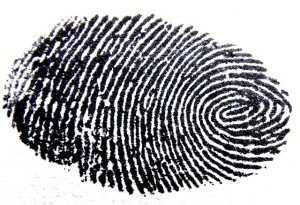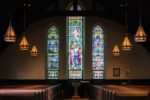 In order to receive this text, we need to pull away from our day-to-day concerns and consider a broader, more historical concern: persecution. In so doing, I we will grip more tightly to our broader hope, security and joy in Jesus.
In order to receive this text, we need to pull away from our day-to-day concerns and consider a broader, more historical concern: persecution. In so doing, I we will grip more tightly to our broader hope, security and joy in Jesus.
Imagine that your chief concern is eclipsed by the more serious problem of persecution. Rather than thinking about your health, you’re thinking about the possibility of being arrested for trusting in Jesus. Rather than the frustration of nothing to watch on Netflix, you’re life is frustrated by imprisonment for following Jesus. Rather than worrying about a relational mishap, you’re worried about execution for associating with the people of The Way.
Christians throughout history and around the world have lived with these concerns. Persecution is part of the Christian package. Jesus said in John 15:18-20a,
If the world hates you, know that it has hated me before it hated you. If you were of the world, the world would love you as its own; but because you are not of the world, but I chose you out of the world, therefore the world hates you. Remember the word that I said to you: ‘A servant is not greater than his master.’ If they persecuted me, they will also persecute you.
With this in mind, consider the story of John the Baptist’s death.
The Death of John the Baptist
It begins with King Herod, the weak and wicked son of Herod the Great. “King Herod heard of it, for Jesus’ name had become known” (Mark 6:14a).
King Herod, whose father massacred babies in Bethlehem to stop the birth of the King of the Jews, heard reports about a man named Jesus, who had been:
- Teaching with astounding authority
- Haling diseases
- Exorcising demons
- Quieting storms
- Raising the dead
- Amassing great crowds
- Stirring controversy with the religious elites
Jesus had just multiplied his influence by sending out his 12 closest followers to do the same sort of miraculous ministry he had been doing (Mark 6:7-13). So people were talking and speculating, “Some said, ‘John the Baptist has been raised from the dead. That is why these miraculous powers are at work in him.’ But others said, ‘He is Elijah.’ And others said, ‘He is a prophet, like one of the prophets of old’” (Mark 6:14b-15).
Herod had an unsettling suspicion that he knew who Jesus was. “But when Herod heard of it, he said, ‘John, whom I beheaded, has been raised.’ For it was Herod who had sent and seized John and bound him in prison for the sake of Herodias, his brother Philip’s wife, because he had married her” (Mark 6:16-17).
Herod the Great had several children. One of his sons, Aristobulus, had a daughter names Herodias. Another son, Philip, married Herodias (Philip’s niece). Another son, Herod Anitipas (the Herod featured in this story), stole Herodias away from his brother Philip. And John publically told Herod that this was wrong.
John’s message had always been about repentance (Mark 1:2-5). In fact, so had Jesus’ (Mark 1:14-15) and the 12 disciples’ (Mark 6:12). Although our modern culture encourages us to justify and accept ourselves, Christianity has always been about escaping ourselves. If your Christianity does not involve repentance, turning away from yourself and your sin, your Christianity is not the Christianity of John the Baptist. It’s not the Christianity of the first disciples. And it’s not the Christianity of Jesus Christ.
Getting back to Mark 6, we see that Herodias held a grudge against John for his message of repentance. “And Herodias had a grudge against him and wanted to put him to death. But she could not, for Herod feared John, knowing that he was a righteous and holy man, and he kept him safe. When he heard him, he was greatly perplexed, and yet he heard him gladly” (Mark 6:19-20).
Herodias wanted John killed, but Herod was conflicted. He feared John, revering him as righteous and holy. He was perplexed by John’s message, but heard him gladly. And he kept John safe, until Herodias’ opportunity arose.
“But an opportunity came when Herod on his birthday gave a banquet for his nobles and military commanders and the leading men of Galilee” (Mark 6:21). This would not have been like a typical American birthday party. This was a group of powerful, unfettered Roman men. It was, as John MacArthur puts it, “gluttony, drunkenness, lasciviousness at its rankest level.” And it was the perfect opportunity for Herodias to use her daughter to manipulate King Herod.
“For when Herodias’s daughter came in and danced, she pleased Herod and his guests. And the king said to the girl, ‘Ask me for whatever you wish, and I will give it to you’ “(Mark 6:21-22). This was Herodias’ daughter with Philip, Herod’s step-daughter. She would have likely been 12 to 14 years old. Her presumably erotic dance so excited her step-father and his drunken friends that he made a foolish promise to give her whatever she wanted. What would she ask for?
“And he vowed to her, ‘Whatever you ask me, I will give you, up to half of my kingdom.’ And she went out and said to her mother, ‘For what should I ask?’ And she said, ‘The head of John the Baptist.’ And she came in immediately with haste to the king and asked, saying, ‘I want you to give me at once the head of John the Baptist on a platter’” (Mark 6:23-25).
Painted into a corner by his manipulative wife, his alluring step-daughter and his on-looking friends, Herod reluctantly agreed. “And the king was exceedingly sorry, but because of his oaths and his guests he did not want to break his word to her. And immediately the king sent an executioner with orders to bring John’s head. He went and beheaded him in the prison and brought his head on a platter and gave it to the girl, and the girl gave it to her mother. When his disciples heard of it, they came and took his body and laid it in a tomb” (Mark 6:26-29).
How a Great Man Died
John the Baptist, whose miraculous birth was prophesied 700 years before it happened, who was the forerunner of the Messiah, who started a movement of repentance in preparation for Jesus’ ministry, of whom Jesus said in Matthew 11:11, “Truly, I say to you, among those born of women there has arisen no one greater than John the Baptist. Yet the one who is least in the kingdom of heaven is greater than he,” died.
John the Baptist died at the order of a weak and wicked king, manipulated by a cunning and vindictive queen, using her young daughter to excite lustful and incestuous passions. His death was made into a spectacle in the midst of a drunken birthday party.
What Are We to Make of This?
How are we to respond to this text? I want to put forth three encouragements based in Hebrews 12:1-2. This is fitting because Hebrews 11 is all about the fate of the faithful, many of whom have suffered and died at the hands of sinful people.
Therefore, since we are surrounded by so great a cloud of witnesses, let us also lay aside every weight, and sin which clings so closely, and let us run with endurance the race that is set before us, looking to Jesus, the founder and perfecter of our faith, who for the joy that was set before him endured the cross, despising the shame, and is seated at the right hand of the throne of God.
1. Lay Aside Every Weight
These are non-sinful hindrances to trusting and following Jesus together. Like a long-distance cyclist, we want to remove every bit of bulk so we can live in this fallen world. And we do amass bulky lives don’t we? Our comforts, endeavors, stuff, relationships and hobbies often leave us with no energy or time for trusting and following Jesus together.
We have sufficient hope, security and joy in God through Jesus Christ to hold all things loosely, even good things. So what are your weights? What is hindering you from trusting and following Jesus together with your church?
2. Lay Aside Every Sin
Sin clings to you like wet blue jeans. Confession and repentance is the way to freedom. If you have sin in your life, confess to God and those against whom you’ve sinned. Come from darkness into the light, from guilt into peace, from shame into reconciliation, from isolation into relationship with God and the people around you.
The message remains the same: repent, for the kingdom of God is at hand.
3. Run the Race Set Before Us
Running the race set before us requires a sort of Christian minimalism/simplicity/essentialism. It requires living in this world in such a way that arrest, imprisonment and even execution do not thwart us.
They persecuted Jesus. They persecuted John. They persecuted the 12 disciples. It’s likely that we’ll experience it too. So let’s lay aside every weight and sin that hinders us. Let’s run with endurance the race set before us, looking to Jesus together.
Discussion Starters
- Take some time to catch up with one another.
- Read John 15:18-20a together. What has been your experience with persecution as Christians? Have you heard about persecution in the news lately?
- Read Mark 6:14-29 together. You might want to split the passage up between a couple of people to read aloud. What strikes you most about this story? What stands out? What do you notice and observe?
- Read Mark 1:2-5; 14-15; and 6:12. How would you define repentance? What role did this message of repentance play in Mark 6:14-29? What role does repentance play in Christianity today?
- Read Hebrews 12:1-2 together. What are some possible “weights” you may need to lay aside? How will you do this?
- What are some possible sins you may need to lay aside? How will you do this?
- What does “running the race set before us with endurance” look like in your life right now?
- Pray together over these things.





